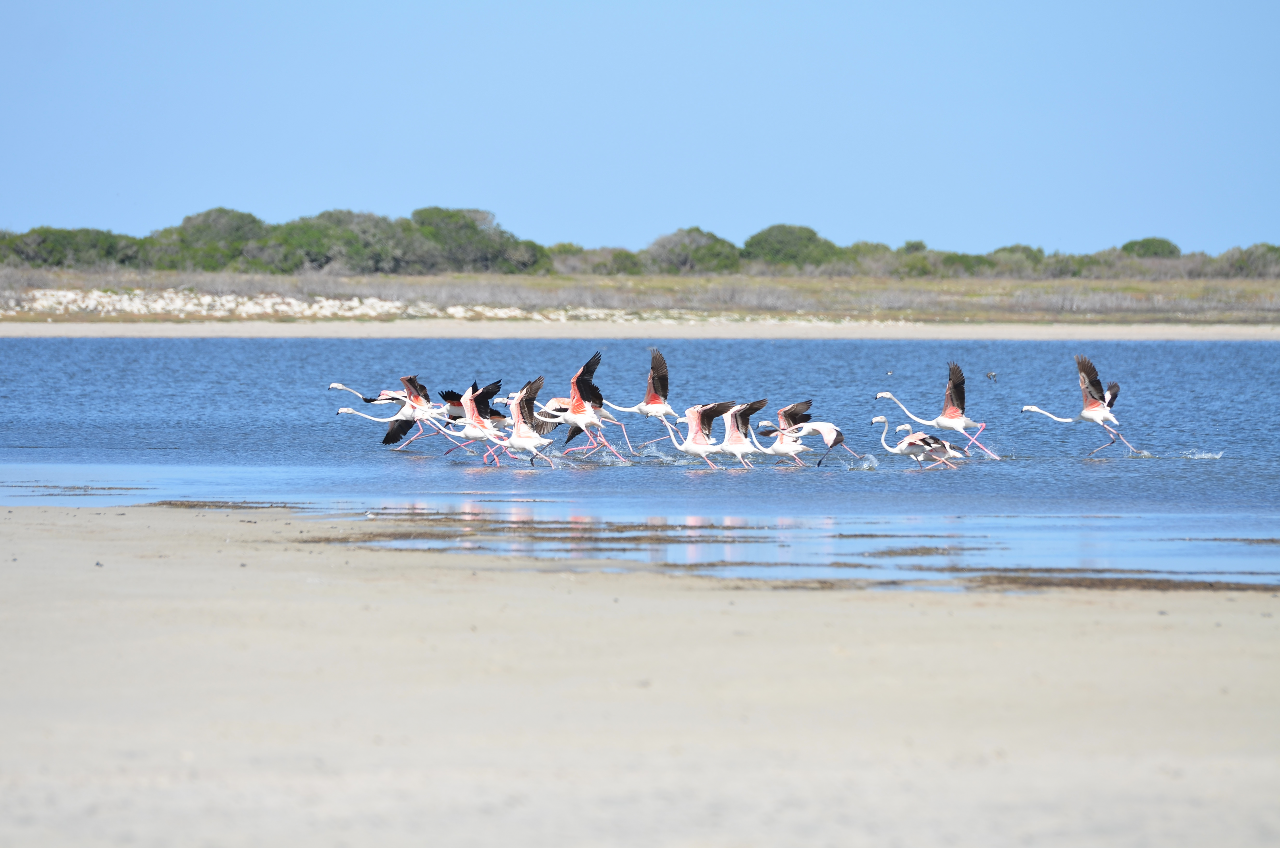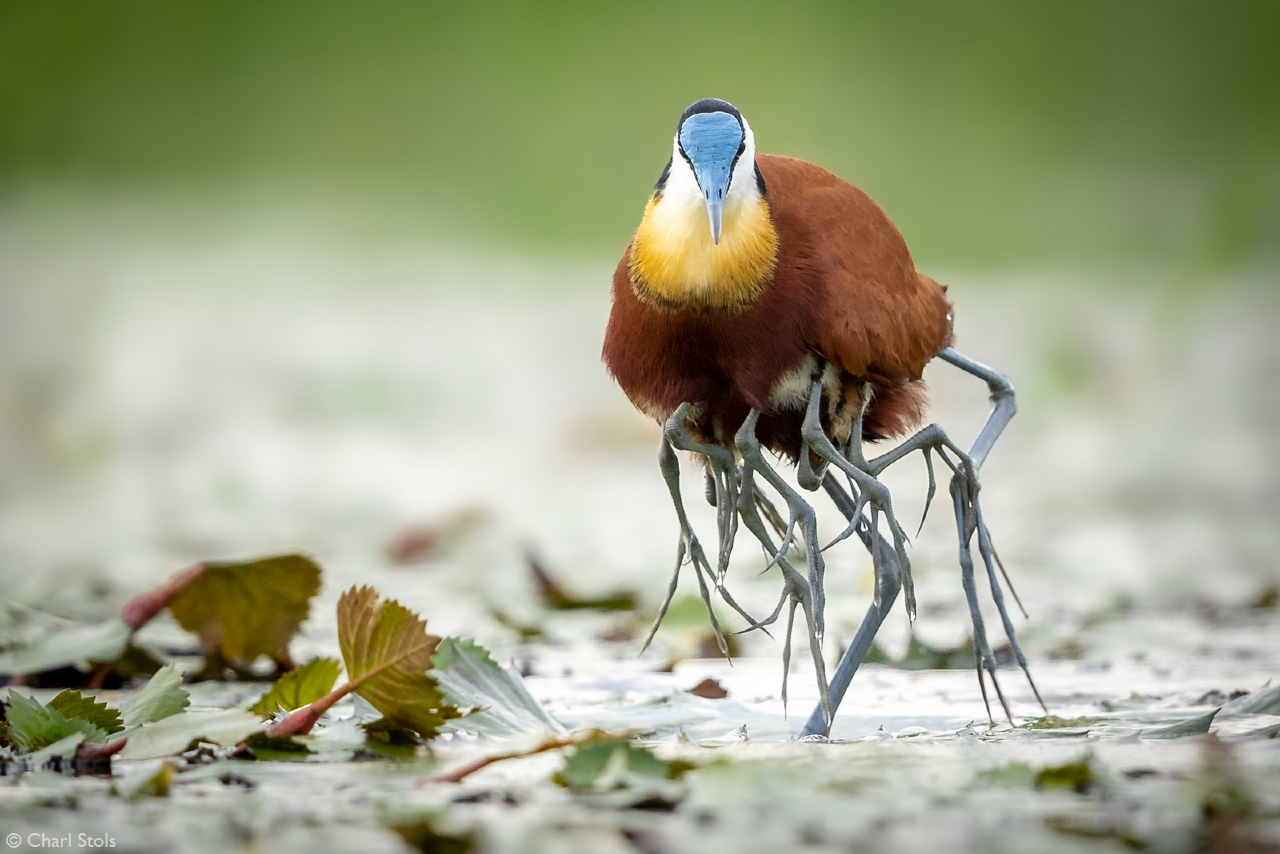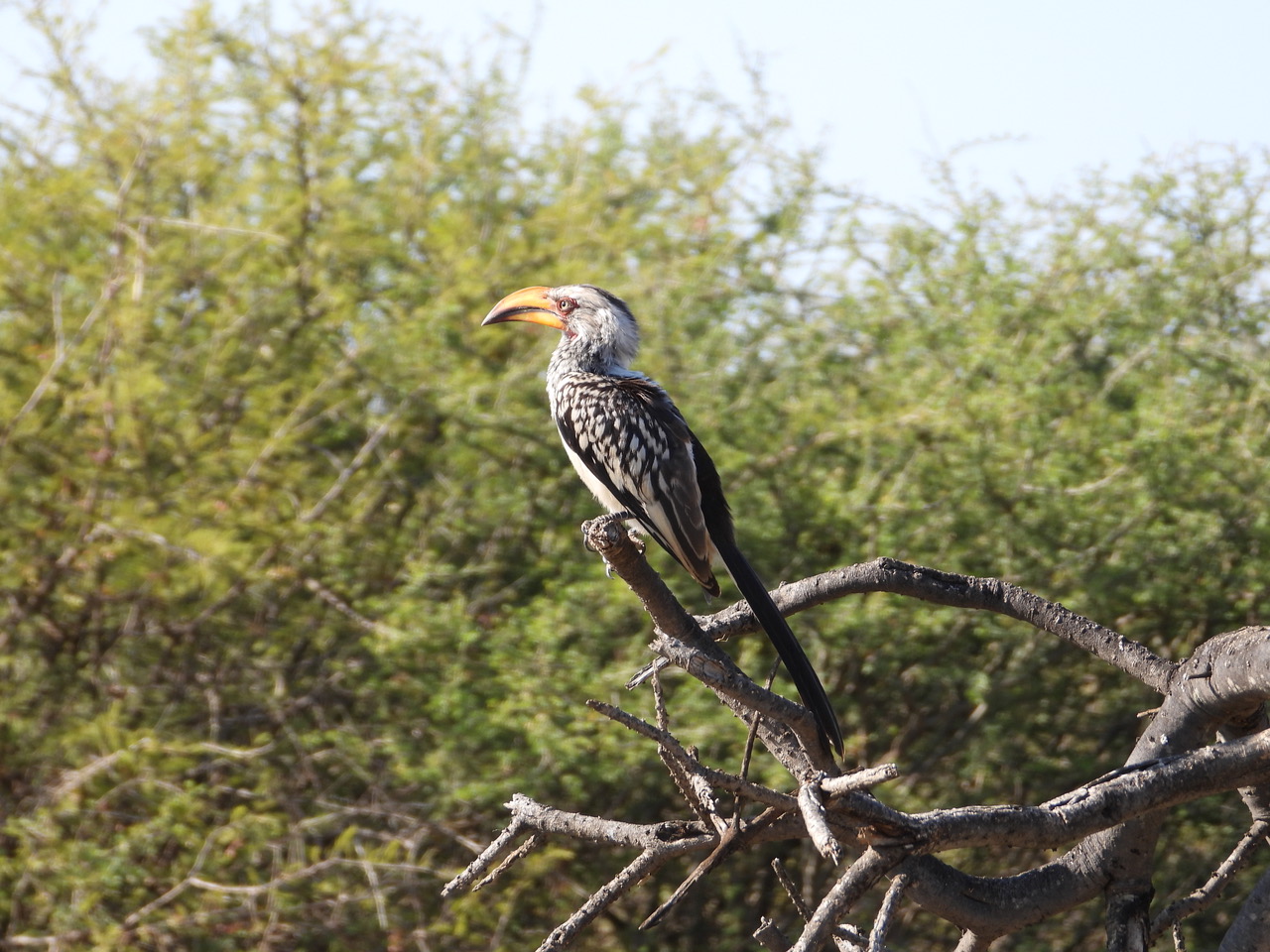AtholPlace House & Villa is set in one of Johannesburg’s most beautiful neighbourhoods. The quiet suburb of Athol is home to large properties and elegant tree-lined streets that attract plenty of feathered residents like the Southern Masked Weaver Bird. Johannesburg has an extraordinary number of trees, many green lungs like golf courses and parks, and plenty of food and nesting opportunities in the leafy suburbs. Daddy weaver birds have been “involved”, “active”, and “engaged” father’s way before their human counterparts got the memo. The male is easily distinguished by its bright yellow breeding plumage and black face. Typically, males have several female partners and will build about 25 nests each season. How’s that for commitment! These nests are woven from reeds, palm or grass. If a female accepts a nest, she will add a soft lining of feathers or soft grass. Rejected nests are stripped bare by the male bird. Brutal!


Morukuru Family De Hoop is home to many special father species. Common to the De Hoop Nature reserve is the Cape Peninsula Moss Frog (Marsupial Frog). Father Frog is very much a super-dad. He guards the eggs that the female lays on the ground. When the eggs hatch, the ground doesn’t provide enough moisture for the tadpoles so he puts them in his brood pouch until they hop out as baby frogs.That gives a whole new meaning to being a “stay-at-home dad”.


(Image Sourced)
The Greater Flamingo is also a very active dad – when it comes to mating, the male helps the female select a nesting site, and together they construct a nest out of mud. The male also shares the responsibility of incubating the egg, as they take turns sitting on the nest. Once the hatchling is born, the male and female share equal responsibility for feeding and protecting their hatchling. Daddy Flamingo challenges the idea of the mother as the primary caregiver.








(Image sourced)
The African Jacana fond both in De Hoop and in Madikwe, has a highly unusual polyandrous mating system. This means one female mates with multiple males, and the male alone cares for the chicks. Such a system has evolved because the lakes that the African Jacana lives on are so nutrition-dense that the relative energy expended by the female in producing each egg is practically nothing. So, the female can keep laying eggs. Plus, the African Jacana eggs can be equally well incubated and cared for by a parent bird of either gender. So how does that affect the work-family balance? The male African Jacana has also upskilled in the parenting department with some remarkable adaptations like developing the ability to pick up and carry chicks underneath its wings.


(Image Sourced)
Southern Yellow-Billed Hornbill is a regular in Madikwe. Hornbill dads take their parenting responsibilities very seriously. Once the male Southern Yellow-Billed Hornbill has mated, he will stay to support his mate. Hornbill nests are found in natural cavities in trees, cliffs or sandbanks, and the male helps set up house by finding bark, leaves and grass to line the bottom of the nest. Mummy Hornbill is looking for a secure retreat, and this means that she seals herself inside the nest by blocking the entry with a wall made from her droppings and food remains. The male will help by bringing mud to add to the renovation. The only opening left is a slit from top to bottom. Daddy Hornbill literally brings home the bacon by making numerous trips every day with food for his mate and the chicks once they have hatched. Uber Eats African bush style! When the chicks are ready, the mother dramatically breaks out of the nest. From here on in, co-parenting is the name of the game, with both the male and female sharing the responsibility of feeding the chicks.


Fun Dad. Wise Dad. Kind Dad. Strong Dad. Fair Dad. Sweet Dad. Whatever type of dad you are... Happy Father’s Day to all the dads out there!
